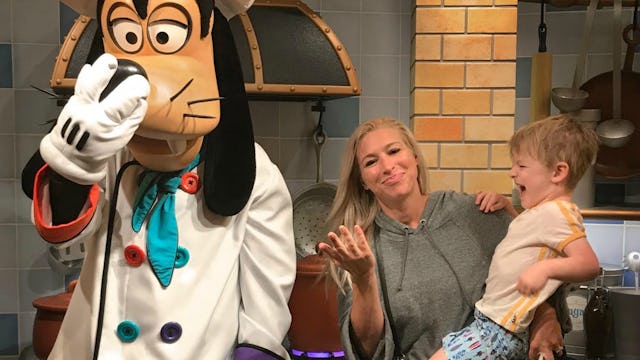Don't Be Sorry I Have A Child With Autism, Just Be Supportive And Kind

Parents, friends, and all loved ones of individuals with a child facing a potential diagnosis, this one is for you. Look, I get it. You feel like you are in a no-win situation. Trust me, we know the feeling. If you admit that something is amiss with the development of our child, we might get defensive. And if you comfort us by assuring us that nothing is amiss, well, then you’re being dismissive and just flat out don’t get it.
But cut us a break. We are equally conflicted, and we are worried, and waiting, and worrying some more.
Should the day arrive when we come to you and share with you the words we have been hiding from for months, sometimes years, please choose your words carefully. Some people in my life had a hard time processing the news. Um, like I didn’t? It’s taken me a very long time to even think about a diagnosis, let alone say it out loud.
A certain family member of mine was in slight denial as to my son’s autism spectrum disorder diagnosis and “needed some time” before they were ready to confront it. Oh really? Are they okay? Is there anything I can do for their personal comfort level?
Perhaps I could join them on a one-way trip to fantasyland where we can eternally live in blissful ignorance. Except, I can’t. I don’t have the luxury. I have a child who needs me to be honest with myself, so that I can get him the help that he needs to thrive in a world that is not designed for him, so excuse me for keeping it real with you.
If you think you are in denial about our child’s diagnosis, try imagining how we feel. It is our instinct as our child’s protector to want to close our eyes and run away and hide from an unfamiliar new reality that undoubtedly promises a lifetime of challenges. But we don’t. We can’t. We didn’t ask for this. We aren’t inventing some sort of sick ploy for sympathy. It’s not a conspiracy, and it is as hard as we say. Actually, it’s harder.
If you haven’t seen the behaviors that you believe justify a diagnosis, then know that’s exactly the point. You haven’t seen them, but we do, every day, and we are the ones dealing with them, tirelessly. So when the people in our lives have a hard time coming to terms with our life circumstances, it really adds on a full serving of insult to the injury we are still working on. We have to show up for our kids, and you should follow our example by showing up for us.
Questioning, seeking, confronting, hearing, and accepting a diagnosis has not exactly been a picnic in the park for us, so can you please not make this part harder on us than it has to be? The last thing we need right now is to convince you of something we, too, are struggling to accept. We are working full-time to support our children through this, so please don’t make us work for your support too. When you question a diagnosis that we believe in our hearts to be accurate, you might as well call us crazy, dramatic, paranoid suckers who are looking for sympathy, or who just simply don’t understand how difficult it is to be a parent. And that’s not fair. Don’t deny who my child is to accommodate your comfort level.
When our child has a good moment, or a good day, or a good week, it does not mean that they are cured, or that we were wrong, or that our child is not autistic. Rather, it means that they had a good moment, or day, or week, and that is wonderful. It’s everything we want, and pray, and hope for in the wee hours of the morning when we are too restless to sleep and too tired to dream. But it does not mean that our kids are fine, or better, or that tonight won’t be a different story.
When our children are thriving, it means that they are growing and working hard, probably in speech, behavioral, and occupational therapies. Don’t discount the tears they shed and the frustrations they faced earning each and every single small victory because they clash with the curtains in your ulterior universe. Learn to live with us, in our very messy and very real realities. They may not be as comfortable as yours, or as pretty to look at, but guess what? It’s ours. It’s home, and there is certainly no place like it.
So, quite frankly, if you aren’t feeling at home, by all means, don’t come over. But if you want to love us, support us, and know us, you must accept us and our lives at face value. Making it all better, with a kiss and a Band-Aid isn’t going to cut it these days. Autism is real. The struggle is real, we deserve real support, and it’s not that complicated. Trust our judgment as parents, and as people whom you love and respect. Embrace our children for the imperfectly perfect, loving, smart, and yes, still challenging kids who they are.